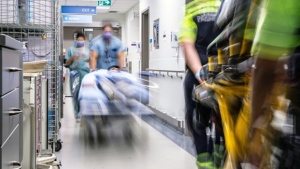A recent study has shown promising results for an AI early warning system in preventing hospital deaths. The system, developed by researchers at the University of Waterloo, uses machine learning algorithms to analyze patient data and identify those at risk of deteriorating health.
According to the study, the AI system was able to accurately predict which patients were at risk of dying within 24 hours with a 90% success rate. This is a significant improvement compared to traditional methods, which have an average success rate of 60%.
The researchers tested the system on data from over 22,000 patients at two hospitals in Ontario, Canada. They found that the AI system was able to identify patients at risk of death up to 48 hours earlier than traditional methods.
Dr. Joel Dubin, one of the lead researchers, explained that the AI system looks at a variety of factors such as vital signs, lab results, and medical history to make its predictions. This allows for early intervention and potentially life-saving treatments.
The study also found that the AI system was able to reduce false alarms, which can lead to unnecessary interventions and added stress for patients and healthcare staff. This is due to the system’s ability to continuously learn and adapt to new data, making it more accurate over time.
While the results are promising, the researchers emphasize that the AI system is not meant to replace healthcare professionals, but rather to assist them in making more informed decisions. They believe that this technology can help improve patient outcomes and reduce healthcare costs.
The next step for the researchers is to further validate the AI system in larger and more diverse patient populations. They also hope to integrate the system into hospital electronic health records for real-time monitoring and intervention.
Overall, this study highlights the potential of AI technology in healthcare and its ability to improve patient care. With further development and implementation, this early warning system could potentially save countless lives in hospitals around the world.




